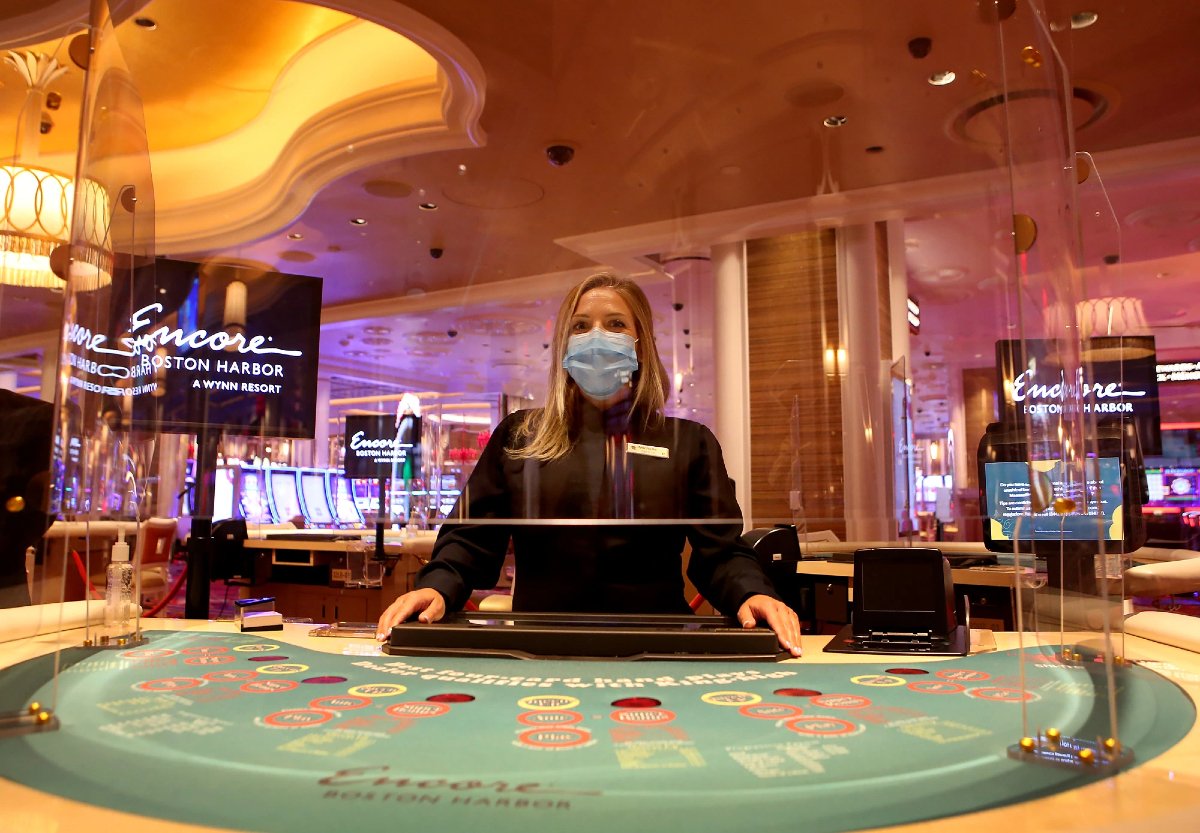Posted on: April 16, 2022, 05:19h.
Last updated on: April 16, 2022, 05:19h.
A Massachusetts casino study regarding job losses caused by COVID-19 concluded that gaming industry layoffs disproportionately affected minorities.

Funded by the Massachusetts Gaming Commission (MGC) and conducted by the UMass Donahue Institute’s Economic & Public Policy Research Group, researchers found that nonwhite workers and women bore the brunt of the pandemic job losses.
Massachusetts’ three commercial casinos — Encore Boston Harbor, MGM Springfield, and Plainridge Park — were fully closed from mid-March of 2020 through June of that year on Gov. Charlie Barker’s (R) orders. The three properties reopened in July, but thousands of resort workers were not called back for months.
The UMass-MGC study found that workers of color and women were most affected by the furloughs and dismissals.
“Since the initial shutdown, many of these workers have returned to the casinos, but the loss of jobs and wages certainly exposed these workers to broader elements of economic instability. Furthermore, the share of women in each casino’s workforce has been slow to recover as the facilities re-open and return to more typical operating levels,” the UMass Executive Summary read.
Researchers added that the “COVID-19 recession proved to be the most unequal recession on record.”
Thousands Impacted
Data supplied to the Massachusetts casino regulator revealed the severe job furloughs and layoffs in the immediate aftermath of the state’s forced closures of the three casinos.
Prior to the coronavirus, Encore, MGM, and Plainridge collectively employed 6,520 workers. The pandemic caused total casino employment to drop to 2,001 — a 69% reduction. It would have been much worse if it weren’t for Wynn Resorts keeping 1,854 workers on payroll during the shutdowns.
MGM Springfield’s job tally dropped to 149 workers and Plainridge Park just 18 people remaining on staff. The racial and gender makeup of those who managed to retain their pay during the closures “was more white and more male than the pre-pandemic workforce.”
The layoffs fell most heavily on people of color, which reflected a broader trend across the commonwealth that when there’s a crisis like this, it often falls most heavily on folks who are, for various socioeconomic reasons, a bit more vulnerable,” Thomas Peake, a senior research analyst at the UMass Donahue Institute, told the MGC.
Sports Betting Prep
During last week’s MGC meeting, commissioners also addressed sports betting. Legislation to expand gaming in the commonwealth to allow sports gambling is widely supported in the General Court.
State Sen. Michael Rodrigues (D-Westport) has faced some criticism for holding up House Bill 3933. The sports betting bill easily passed the House by a 156-3 vote in July of 2021. Rodrigues chairs the Senate Ways and Means Committee where the statute has sat since.
Rodrigues assures that work on the measure is going on behind the scenes. And when the committee is ready to vote on the gaming issue, one will occur.
If the Senate and Baker eventually sign off HB3933, MGC Chair Cathy Judd-Stein said the commission will not drag its feet in getting sports betting up and running.
“We feel really confident that with all the due diligence we’re doing, if we were designated the regulator of legalized sports wagering, we’d be able to get those regulations in place nimbly and we’d be able to start issuing licenses,” Judd-Stein said.